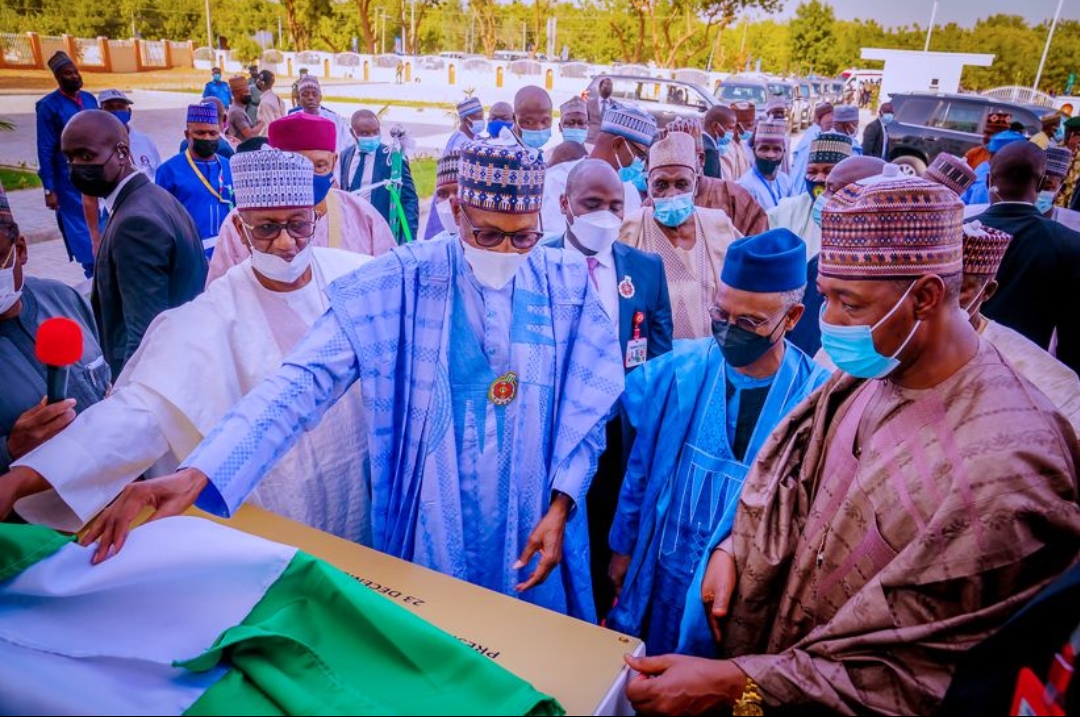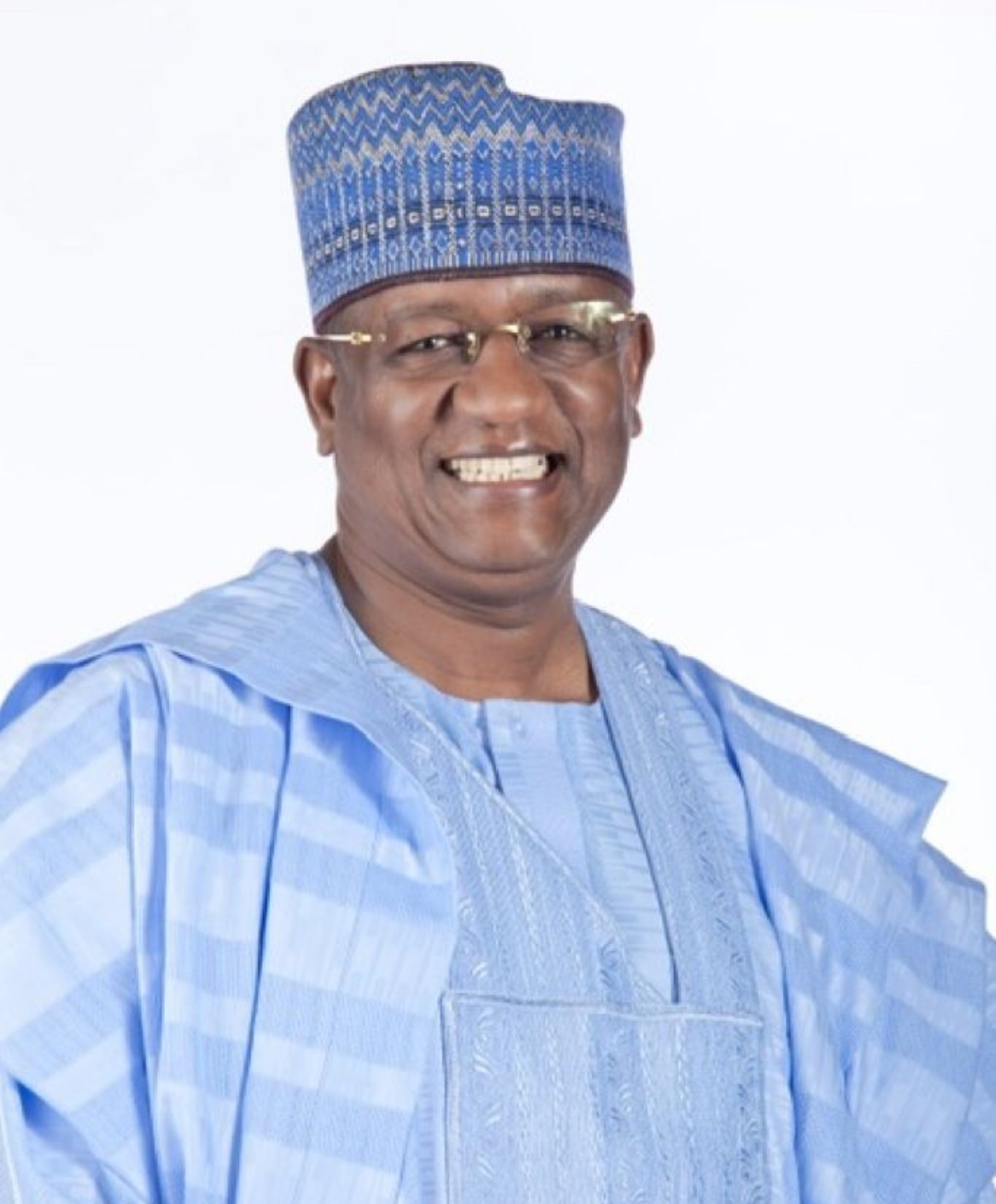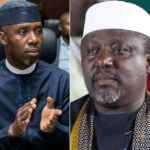...To get all news updates, Join our WhatsApp Group (Click Here)
Also Join our WhatsApp Channel (Click Here)
The fact that Alhaji (Dr.) Muhammadu Indimi is one of Nigeria’s most prominent businessmen and one of the most generous and consistent philanthropists in this clime is not in doubt.
Neither is the fact that his extensive giving is targeted around Education, Health, Social Enterprise Development & Support as well as Special Emergency Interventions based on exigent circumstances.
A few days ago, the President HE Muhammadu Buhari was in Maiduguri to commission the multibillion naira purpose built complex donated by the kind hearted billionaire to the University of Maiduguri.

The complex which boasts a suite of work class facilities is home to the Centre for Distance Learning as well as the International Conference Centre. Facilities include Exam Hall, conference room, e-Resources Centre, laboratory as well as staff offices and recreational areas.
Find below, 10 things you did not know about Alhaji (Dr.) Muhammadu Indimi.
1. Alhaji (Dr.) Muhammadu Indimi was born in Maiduguri on August 12, 1947 making him 74 years. He was born to the family of late Alhaji Mamman Kurundu a businessman who dealt in hides and skins.
2. Alhaji (Dr.) Muhammadu Indimi did not have the benefit of formal education. He was enrolled instead, like many of his peers in a Qur’anic school. A diligent and smart child, the young Muhammadu taught himself to read and write in English.
3. His first business foray was to follow in the footsteps of his father as a trader in hides and skin. Able to read and write, Muhammadu Indimi aspired to more and so his father borrowed E100(pounds) from a friend so that young Indimi could continue doing business on his own .
4. By the 80s, Alhaji (Dr.) Muhammadu Indimi had become a man of means and enterprise, so much so that by 1991 he ventured into oil and gas business. That year the Nigerian Government launched the indigenous Concession Program .
5. Diligent, focused and enterprising, Dr Indimi’s Oriental Energy Resources was among the first of the 11 companies to bring their field to first oil, thus underlining the success of the exercise and the visionary policy of encouraging indigenous participation in the Nigerian oil and gas ecosystem.
6. Today, 31 years later, Oriental Energy Resources and Consolidated oil (now Conoil) remain the stand out successes from that exercise, showing that Nigerian entrepreneurs can become successful oil and gas moguls.
7. Without the pioneering success of enterprising businessmen like Alhaji (Dr.) Muhammadu Indimi, there probably would have been no Marginal field round under the Obasanjo administration and maybe today, we would not have wave-making companies like Seplat, Midwestern, Neconde and the rest.
8. Where many philanthropists have adopted a tokenistic approach, Alhaji (Dr.) Muhammadu Indimi set up the Muhammadu Indimi Foundation (MIF) as a well-structured vehicle for carrying out his philanthropic activities ensuring that his giving is impactful and fit for purpose.
9. Alhaji Indimi was among the top donors towards efforts to contain the Covid-19 outbreak. While plans are underway to build a secure housing estate for Oriental Energy’s host community in the Mbo and Effiat LGAs of Akwa Ibom state; Dr Indimi has also provided scholarships for over 1000 indigenes of Akwa Ibom state since 2009, donated 200 million naira as emergency support for victims of disaster in Nigeria; donated 2 billion naira to support victims of insurgency in the North-East, gave 200 million naira to support IDPs in Adamawa, provided annual food and cash support for over 30,000 IDPs in Borno and invested 600 million naira in a fully equipped estate with 100 homes, school and medical centre in Bama under the MIF resettlement initiative for IDPs amongst others.
10. Alhaji (Dr.) Muhammadu Indimi has chronicled his rags to riches story and what drives his spirit of philanthropy in lectures on international platforms and ivy league universities like Harvard and he has received honours and accolades from far and near; he was awarded Nigerian National Honour, Officer of the Federal Republic of Nigeria (OFR) in 2012; received an honorary doctorate from Lynn University, Florida in 2013; received an honorary doctorate from University of Uyo in 2017; won the Vanguard (Nigeria) Businessman of the Year in 2017; received an honorary doctorate from Nigeria Defense Academy in 2018 and received Doctor of Science, Honoris Causa at the 51st convocation ceremony of the University of Lagos in July 2021. In December, 2021, Dr Indimi was also awarded an Honorary Doctorate Degree in Technology by the Kwara State University , and Honorary Doctorate Degree in Entrepreneurship by the Kaduna State University, Kaduna .
You can get every of our news as soon as they drop on WhatsApp ...To get all news updates, Join our WhatsApp Group (Click Here)
Also Join our WhatsApp Channel (Click Here)

















